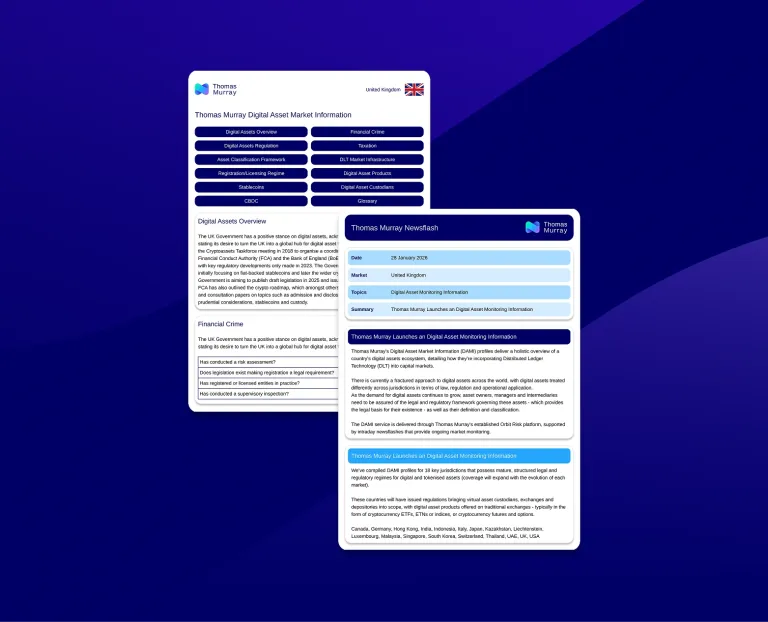Information current as at 1 October 2025
SIBOS Update:
Swift to Add Blockchain-Based Ledger to Infrastructure Stack
SWIFT has announced a landmark initiative to integrate a blockchain-based shared ledger into its technology infrastructure. The ledger, developed in collaboration with over 30 global financial institutions, as well as Ethereum blockchain developer Consensys, will enable real-time, 24/7 cross-border payments and will be built for interoperability with existing and emerging networks. The project aims to combine the benefits of blockchain technology with SWIFT's existing messaging, APIs, and ISO 20022 standards to create a more powerful and secure payments system. The initiative is part of SWIFT's dual approach to innovation, which focuses on both operational excellence and preparing for future technological advancements. The blockchain-based ledger is expected to drive innovation at scale, making payments faster, more predictable, and globally scalable, while maintaining the trust, resilience, and compliance that SWIFT is known for.
Chainlink and 24 Financial Market Participants to Target Corporate Actions Processing
On day 1, Chainlink has announced a major initiative with 24 leading financial market participants to solve the $58 billion corporate actions problem. The initiative aims to streamline corporate actions processing by leveraging Chainlink's oracle platform, blockchains, and artificial intelligence (AI) to extract, validate, and deliver corporate actions data in a standardized format. Participants include major financial market infrastructures such as Swift, DTCC, and Euroclear, as well as leading asset managers and banks like UBS, DBS Bank, and BNP Paribas. The goal is to create a unified infrastructure for corporate actions processing, enabling a cross-market standard across the global financial system.
Other Global Developments and Updates:
Deutsche Bank Conducts its First Euro Transaction via Blockchain
Deutsche Bank has completed its first euro-denominated cross-border payment via Partior's blockchain platform, in collaboration with DBS, with Deutsche Bank acting as the settlement bank on the platform, while DBS acted as the beneficiary bank. The transaction demonstrated the potential of blockchain to complement existing payment rails. Deutsche Bank invested in Partior in 2024 and finalised a platform agreement in May 2025. The partnership aims to deliver real-time, secure, and scalable settlement. The integration with Partior is expected to bring benefits to its FI clients, including efficient reconciliation and reduced payment failure risks. Real-time settlement occurs directly on the blockchain, optimising liquidity management and enabling real-time treasury management.
US and UK set to Cooperate Over Crypto Capital Markets Access
Announced during President Trump’s state visit in September, the UK and US governments are due to establish a taskforce to enhance collaboration on capital markets and digital assets. The Transatlantic Taskforce for Markets of the Future will report back within 180 days on ways to reduce red tape for firms accessing capital markets on both sides of the Atlantic and improve cooperation on crypto assets. The taskforce will be chaired by UK and US finance ministry officials and include regulators from both countries.
Banks Inject $136m Into Blockchain Payments Network Fnality
Fnality, the operator of a DLT-based wholesale payment system, has raised $136 million in a Series C funding round led by WisdomTree, Bank of America, Citi, KBC Group, Temasek and Tradeweb. The lead investors were joined by existing investors Banco Santander, Barclays, BNP Paribas, DTCC, Euroclear, Goldman Sachs, ING, Nasdaq Ventures, State Street and UBS. The investment will support the development of its blockchain-based payment system, extending its network to other major currencies, optimise liquidity management, and facilitate the payment ecosystem for innovations like stablecoins and tokenised deposits. The investment highlights the growing interest in blockchain technology and its potential to transform the payments industry. Fnality’s system is designed to enable instant settlement and reduce counterparty risk, making it an attractive solution for financial institutions and corporations. The funding will help Fnality to further develop its technology and expand its reach in the market.
BitGo Files for NYSE IPO
BitGo, a digital asset custody firm, has filed for a US initial public offering (IPO) with $90.3 billion in assets under custody. The company plans to list its Class A common stock on the New York Stock Exchange (NYSE) under the ticker symbol "BTGO". BitGo will maintain control through a dual-class share structure, qualifying it as a "controlled company" under NYSE rules, exempting it from certain governance standards. The IPO filing follows the company's recent approval for EU crypto services under the MiCA regulation, which allows it to offer digital asset services across EU member states. The move aims to capitalise on the growing momentum of institutional crypto adoption in the US.
Morgan Stanley to Offer Crypto Trading Through E*Trade Following Zerohash Investment
Morgan Stanley is preparing to offer crypto trading to retail customers through its E*Trade platform, with plans to launch in the first half of 2026. The company is partnering with zerohash, a crypto and stablecoin infrastructure platform, to provide liquidity, custody, and settlement services for crypto trading on E*Trade. Morgan Stanley recently participated in a $104 million funding round for zerohash, led by Interactive Broker. In addition to crypto trading, the bank also plans to offer tokenised versions of traditional assets, leveraging distributed ledger technology (DLT) and tokenisation.
Ripple Stablecoin Becomes Offramp for BlackRock Tokenised Fund
Ripple has partnered with Securitize to create a smart contract that enables holders of BlackRock's BUIDL and VanEck's VBILL tokenised funds to exchange their shares for Ripple's RLUSD stablecoin. This provides an additional off-ramp for investors, allowing them to instantly exchange their shares for RLUSD 24/7 and access stable, on-chain transfers. The partnership aims to bridge traditional finance and crypto, providing continuous exposure to RLUSD and preserving access to on-chain yield and DeFi strategies. The integration of RLUSD into Securitize's tokenisation infrastructure is expected to automate liquidity for tokenised assets and deliver real-time settlement and programmable liquidity for institutional finance.
FCA Consults on Application of Existing Handbook Rules to Crypto Firms
The UK's Financial Conduct Authority (FCA) has published a consultation paper, CP25/25, seeking feedback on applying existing rules to cryptoasset firms. The FCA proposes to apply similar rules as traditional investment services, including conduct of business and client assets. This is part of the government's efforts to support growth in the UK crypto sector. The consultation seeks industry feedback on adapting rules for cryptoassets' unique characteristics. The deadline for responses is 15 October 2025 for discussion chapters and 12 November 2025 for other proposals. The FCA's final rules will significantly impact the industry's future shape in the UK.
Deutsche Börse Group to collaborate with USDC stablecoin issuer Circle
Deutsche Börse Group has partnered with Circle to integrate the stablecoin issuer's EURC and USDC products into its financial market infrastructure. The collaboration will enable institutional clients to trade, settle, and custody the MiCAR-compliant stablecoins. Initially, the partnership will focus on listing and trading stablecoins on 3DX, a digital exchange operated by Deutsche Börse's FX unit 360T, and through Crypto Finance, its institutional crypto provider. Clearstream, Deutsche Börse's post-trade business, will also be involved in stablecoin custody, with potential future applications including the use of stablecoins as settlement assets for tokenised securities. The partnership aims to leverage the stability and compliance of Circle's stablecoins to expand the reach of digital assets within traditional financial markets.

Digital Asset Custodian Monitoring
Our DACM solution sets a standard for transparency and risk intelligence in digital markets. Against an industry that is complex, fragmented, unstandardised, and fraught with cyber risk, our solution provides you with the tools and insights to effectively evaluate, select and monitor your digital asset custodian.
Let’s Talk
Interested in strengthening your approach to digital asset custody?
Get in touch to request a demo, or to talk to one of our experts to find out how Thomas Murray can support your risk evaluation, monitoring, and strategy execution in the digital asset space.
Insights

Why 72 hours is the New Standard for M&A Cyber Due Diligence
A decade ago, cyber due diligence sat somewhere between “nice to have” and “we’ll deal with it post-close.” That world no longer exists.

Thomas Murray Launches Digital Asset Market Information (DAMI)
Thomas Murray, a global leader in risk management, due diligence, and cybersecurity services, is proud to announce the launch of Digital Asset Market Information (DAMI).

Solving the "Scale Paradox": How to Automate Portfolio Oversight with Fewer People
In 2026, private equity technical teams are facing a "Scale Paradox": portfolios are growing in complexity, while in the internal teams responsible for operations and cybersecurity oversight, headcounts remain stagnant.

How Private Equity Hackers Choose Their Targets
Private equity firms sit at the intersection of high-value financial transactions, sensitive deal data, and an expanding portfolio of technology heavy portfolio companies – and it’s this combination that makes PE an attractive target for cyberthreat actors.

